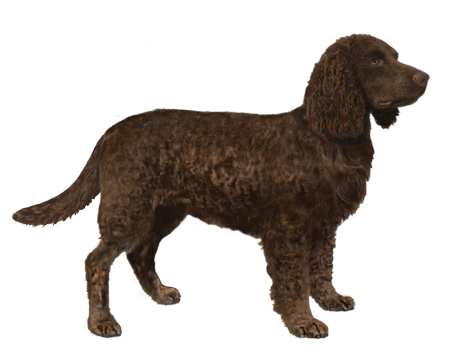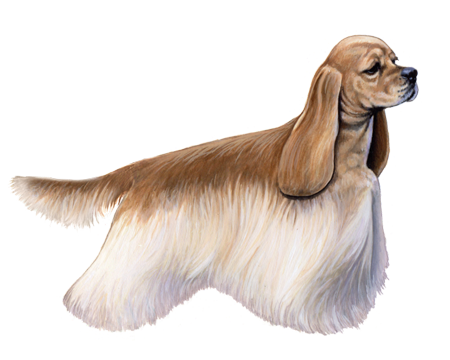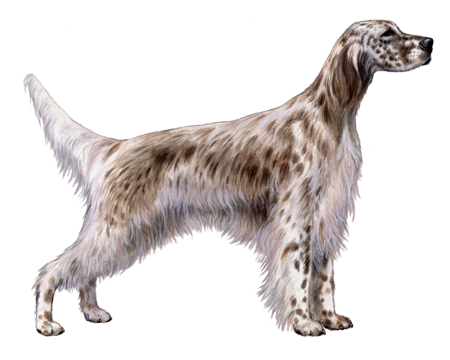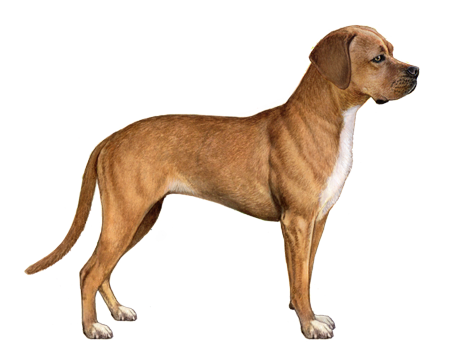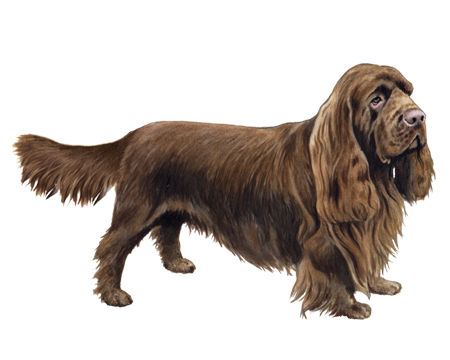
Dalmatian
The Dalmatian is a calm and gentle—but very active and intelligent—breed. As a result, Dalmations tend to make good-natured, relatively easy-to-train, and obedient dogs. They're also very loving, affectionate, and devoted to their families.
Interested in discovering if your dog is a Dalmatian?
Check out Wisdom Panel's DNA tests.

Dalmatian Traits
General Appearance
With its famously spotted coat, the Dalmatian is not only one of the most recognizable breeds but also one of the oldest. Though no one knows the exact date, some believe Dalmatians have existed for more than four thousand years.
The Dalmatian is an eye-catching dog with a distinctive spotted coat, poised and alert posture, and a muscular build.
Coat and Coloring
Dalmatian puppies are born white and later develop spots between the size of a dime and a half-dollar. And, while a variety of coat colors are possible, black or liver are considered breed standard with the dog's nose sharing the color of its spots. The distribution of a Dalmatian's spots is typically even, though there are generally more on the ears.
Dalmatians coats are short, dense, fine, and close-fitting. They are sleek, glossy, and have a very healthy appearance.
Distinctive Physical Traits
Dalmatians have medium-sized, somewhat rounded eyes set moderately well apart. These can be brown or blue. (Occasionally, a Dalmatian has one eye of each color.)
Their ears are moderately sized, set high, and carried close to the head. They're triangular-shaped—wide at the base and tapering gradually to a rounded tip.
A Dalmatian's tail tapers to the tip and has a slight upward curve.
Dalmatian Temperament
Dalmations are an excellent breed for families that can provide frequent exercise and an active lifestyle. Without adequate exercise, Dalmatians may become hyper or turn to destructive behaviors.
Though they're friendly dogs that love being with people, their energetic temperament makes them best suited for families with relatively older children.
Dalmatians tend to be loyal and affectionate with their families, and friendly with other pets. But they can be aloof with strangers, and male Dalmatians sometimes display territorial aggression toward each other. Proper socialization can help with these behaviors.


Dalmatian History
Evidence of the Dalmatian dates to at least the 1700s—though there are images that look similar to the breed dating back thousands of years. The exact origin of the Dalmatian is highly-disputed. However, most people believe that the breed developed in Dalmatia, a region in southwestern Croatia that borders the eastern Adriatic Sea.
The name Dalmatia or "Delmatia" comes from the ancient Illyrian word meaning "land of shepherds." And it was from this area that the breed received its name.
In 17th century England, Dalmatians worked as carriage dogs. Their speed, protective nature, and coaching instincts were invaluable when tasked with accompanying carriages and horseback riders and protecting them from threats along their journey. Later, Dalmatians put that same skill set to good use in their iconic role as firehouse dogs. They ran alongside horse-drawn fire engines and helped them maneuver through busy city streets.
Dalmatians received AKC recognition in 1888.
Dalmatian Care
Nutrition
As with all dogs, Dalmatians need high-quality food that's appropriate for their life stage (e.g., puppy, adult, senior). And food portions and treats must be monitored to prevent obesity. As a guideline, treats should make up no more than 10% of a dog's daily calories.
Dalmatians are prone to urate stones, so a special diet—low in purines, moderate in protein, high in complex carbohydrates, and low in fat and salt—can help. Breed-specific and prescription formulas are available. Your veterinarian will be your best resource for choosing the right diet for your Dalmatian.
Grooming
The Dalmatian's coat is relatively easy to maintain. Brushing once a week is typically all it takes to keep it shiny and free of loose hair.
Routine trimming helps keep a Dalmatian's nails at an ideal length, thereby preventing walking issues.
Maintaining good dental hygiene is essential for your dog's overall long-term health. In addition to professional dental cleanings, you should create an at-home routine that includes regular teeth brushing.
Exercise
Dalmatians are extremely high-energy dogs that need daily mental and physical exercise. They make great hiking or running buddies and love to race around in a fenced backyard.
Due to their stamina and athletic ability, Dalmatians excel at dog sports such as agility, flyball, tracking, scent hurdling, and both rally and competitive obedience.
Training
Dalmatians want nothing more than to please their families, and they love praise. Not surprisingly, this makes them very receptive to positive reinforcement and reward-based training.

Dalmatian Genetic Health Conditions
-
Acute Respiratory Distress Syndrome
Acute respiratory distress syndrome (ARDS) is a rare, life-threatening disorder that causes a rapid severe respiratory failure that is unresponsive to treatment.
-
Hyperuricosuria
Hyperuricosuria (HUU) is a condition that predisposes affected dogs to the formation of urinary stones, such as kidney or bladder stones.
Knowing if your Dalmatian is a carrier or at-risk for these conditions can help you and your veterinarian plan for your pup’s lifelong care. With Wisdom Panel™ Premium, you can get results for over 200 genetic health tests.
Breed Group
Sporting
The sporting group breeds are incredibly diverse in personality and appearance, but can be characterized as very sturdy. They were developed to work closely with people and in general have a very responsive nature and high intelligence.
Resources
https://www.akc.org/expert-advice/lifestyle/dalmation-breed-facts/
http://images.akc.org/pdf/breeds/standards/Dalmatian.pdf
https://vcahospitals.com/know-your-pet/dog-breeds/dalmatian
https://www.akc.org/dog-breeds/dalmatian/
Reviewed July 26, 2020 by Cindy Elston, DVM, MPH




